

Protection of Women Against Domestic Violence Act, 2005.
Why is this topic important?
1 out of 3 women in India is a victim of domestic violence. However, many of them are unaware that they are being subjected to violence. We hope that the module can help you identify the signs or types of domestic violence, the various reliefs available under the law from the police and courts, the authorities/support systems and their role like protection officers, magistrates etc
What is Domestic Violence?
- Domestic violence refers to violent or abusive behaviour in a household that causes harm and may put the health and safety of a woman or any child under her custody in danger. Domestic violence includes physical abuse, verbal abuse, emotional abuse, economic abuse, and sexual abuse (marital rape).
- You are protected from being abused by your spouse or his family. The law not only protects you from your husband/partner but anyone (male or female) in your family or your husband’s family. In India, domestic violence is a crime under Section 498A of the Indian Penal Code, 1860 punishable with a jail time of up to 3 years along with a fine. Domestic Violence is also a ground for divorce under the personal laws in India.
- The current module provides information on the civil remedies available to women under the Protection of Women from Domestic Violence Act, 2005. It particularly looks at the other reliefs apart from the arrest of the abuser which is available to women under the Protection of Women against the Domestic Violence Act.
What is the Law being covered in the guide?
- Protection of Women from Domestic Violence Act, 2005
- Protection of Women from Domestic Violence Rules, 2006
- Judgments by the Supreme Court of India.
Breaking Down the Concept – Instances of Domestic Violence
Physical Abuse :
Any behaviour which causes you bodily pain, harm, or danger to life, limb or health,or impairs your health or development. Illustrations of Physical Abuse include:
Hitting, Slapping, Punching, Kicking, Biting, Choking, Using a weapon to threaten or hurt, Burning, Strangulation, Forcing into substance abuse, Abuse during pregnancy, Restraining/controlling you at home.
Verbal/Emotional Abuse: You can face verbal and emotional Abuse in the form of insults and threats employed to intimidate and control you. Illustrations of verbal/emotional abuse include:
- Ridiculing you in front of your children and your family,
- Humiliating you in front of other people,
- Name-calling,
- constant nagging for not having children/male child,
- controlling your actions and movements,
- threatening you to hurt you or someone related to you,
- threatening to leave you or commit suicide,
- threatening you by using looks, actions or gestures,
- threatening to take your children away,
- displaying weapons,
- smashing things,
- treating you like a servant, and
- infidelity.
Sexual Abuse
Sexual abuse includes any conduct of a sexual nature that abuses, humiliates, degrades or otherwise violates the dignity of women. Any sexual activities conducted between you and your partner, without your consent, constitutes Domestic Violence. Examples of Sexual Abuse include:
- forcing you to have sex with other people;
- pursuing sexual activity when you are not fully conscious or are afraid to say no;
- demanding sex when you are sick, tired or after beating you.
Economic Abuse
- Economic abuse includes depriving a woman of all or any financial resources like stridhan, household necessities, jointly or individually held properties of the woman, payment of rent, or maintenance of the shared household.
- It also includes alienation of assets whether movable or immovable, valuables, shares, securities, bonds and the like or other property in which the woman has an interest or is entitled to use by virtue of the domestic relationship or which may be reasonably required by her or her children or her stridhan or any other property jointly or separately held by the aggrieved person. Restricting access to the household in which the woman was staying during her marriage.
Who is the victim?
Any woman, regardless of her religion or caste can file a complaint and seek protection against domestic violence under the law, for herself and her child/children. To file a complaint about domestic violence, you can have the status of a wife, widow, female live in-partner, mother, grandmother, stepmother, adoptive mother, mother-in-law, daughter, daughter-in-law, granddaughter, stepdaughter, adopted daughter, sister, step-sister, sister-in-law, aunt and niece residing in a joint family.
You can also file a complaint before or after a judicial separation, after deserting your husband because he was subjecting you to domestic violence and if you faced violence by your husband or in-laws before initiating the divorce, after filing for the divorce and in some cases, after getting divorced. For instance, if a woman and her husband continued to take care of your child together after getting divorced, and you faced harassment in the course of that. A widow who continues to live with her in-laws can also file a complaint about domestic violence.
Who is the perpetrator?
Any adult male person can be the perpetrator of domestic violence. This person can have the status of a husband, male live-in partner, father, stepfather, father-in-law, adoptive father, grand father, son, son-in-law, adopted son, stepson, brother, brother-in-law, stepbrother, uncle and nephew in a joint family.
You can also file a complaint against the relatives including female relatives of your husband or male partner given that they shared the household when the incident of domestic violence occurred.
Where can Domestic Violence take place?
An act of domestic violence can happen anywhere. It need not always be confined to the house you are living in. Domestic violence can take place anywhere, like
-
- your place of employment or education,
- your child’s school,
- your place of employment or education,
- the marketplace, etc.
Domestic violence can take place at any point during or after the end of her relationship when a woman has shared a household with the perpetrator. This household includes:
- owned or rented either jointly by the perpetrator and the woman;
- owned or tenanted by either of them or both jointly or singly have any right, title, interest or equity and include such a household which may belong to the joint family of which the respondent is a member, irrespective of whether the perpetrator or the woman has any right, title or interest in the shared household.
For example: If the house in which the woman and her abusive husband is living is owned by his mother, it will be considered a shared household and any incident of abuse against the woman by the residents of that house will be considered as domestic violence.
Processes and Work by Authorities
- Who to Approach
You can approach the police station in your area, or any other police station, and file a complaint about domestic violence. The police will file a First Information Report, and/or direct you to the Protection Officer of the district who will file a Domestic Incident Report (DIR/FIR) and help you out further. You can also approach the protection officer, or directly approach the State and National Commission for Women.
The list of Protection Officers in Delhi.
The list of Protection Officers in Mumbai.
The list of Protection Officers in Bangalore.
- Domestic Incident Report
The Domestic Incident Report is a document prepared by the Protection Officer or Service Provider that records a complaint under the Domestic Violence Act of 2005. It is a special report for cases of domestic violence which will have all the details of the harasser(s), the details of the victims, etc. This report is similar to an FIR prepared by the police when they receive a complaint about a crime.
- Magistrate
If the magistrate is satisfied after referring to the DIR that domestic violence has occurred, he/she will award the relief that is sought by the survivor.
Types of Authorities & their Work
- Protection officer and police officer
The Protection Officer will help you file a Domestic Incident Report (DIR) They will also help you file a direct complaint with the Court and assist you in getting legal support. The PO will help you in preparing a safety plan, getting free legal aid, counselling, medical aid and access to shelter homes and other service providers. If you cannot find a Protection Officer or a service provider, you can approach the nearest police station to file a complaint. The officers will put you in touch with a Protection Officer and file an First Information Report, through which a criminal case can be initiated.
- Magistrate
A Magistrate who receives a complaint of domestic violence is supposed to inform the survivor of her right to make an application for obtaining various reliefs by way of orders, about the availability of services of service providers; about the availability of services of the Protection Officers; and her right to free legal services along with her right to file a criminal complaint wherever relevant. The Magistrate can direct the survivor or the perpetrator to either singly or jointly, undergo counselling with any member of a service provider who possesses such qualifications and experience in counselling.
- Service Providers
Organizations which help women in trouble by providing:
- legal, medical or financial assistance are known as service providers.
- connecting the victims with protection officers.
- shelter, employment opportunities and vocational training, counselling, etc.
- Recording a Domestic Incident Report themselves and forward it to the concerned Court or Protection Officer.
- medical checkup, especially if you are injured and forward the medical report to the concerned Protection Officer or police station.
Such organizations need to be registered under the Domestic Violence law in India. These services will likely be free of cost, depending on the type of organization you have approached. qualifications and experience in counselling .
Reliefs under the Domestic Violence Act
To seek immediate relief against domestic violence, you can file an application with the Court with the help of a Protection Officer or a lawyer for the following orders:
| Name of the order | Purpose | Nature of the order | Features |
| Protection order | The Court will pass an order to give you and your child/children protection from the harasser. | Temporary, but for a fixed duration until the Court feels that such an order is not required due to a change in circumstances. | The protection order will help you in stopping the violence, preventing harassment, protecting your property and finances and regulating the actions of the perpetrator. |
| Residence order | The Court will pass an order to give you protection from being thrown out of the house that you shared with your husband or his in-laws. | Temporary, but for a fixed duration until the Court feels that such an order is not required due to a change in circumstances. | The residence order will ensure that the perpetrator is not able to force you out of this house, dispose off the house or will be asked to find alternative accommodation or move out of the house themselves. |
| Compensation order | The Court will pass an order | Temporary, but for a fixed duration until the Court feels that such an order is not required due to a change in circumstances. | The compensation order will ensure that the perpetrator pays compensation for the losses incurred. If your harasser does not give you the money, as ordered by the Court, you should inform the Court with the help of a lawyer. The Court will then ask the harasser’s employer/boss to pay the amount to the court and deduct it from his salary or any other person who owes the harasser money to pay the amount to the court which will then be given to you. |
| Custody Order | The court will grant the temporary custody of any child or children to you or the person making an application on your behalf. | Temporary, but for a fixed duration until the Court feels that such an order is not required due to a change in circumstances. | The custody order will ensure that the perpetrator is not allowed to visit such a child or children if the court feels that it will be harmful for the child to live with the perpetrator. |
Criminal and Personal Laws on Cruelty
Why is this topic important?
In India, 1 out of 3 women is a victim of Domestic Violence (DV). However, many of them are unaware that they are being subjected to DV. We hope that the module will help women identify the signs or types of domestic violence, the punishments and reliefs under the law, the various authorities/support systems and their roles.
What is Cruelty?
In the context of domestic violence, cruelty includes the actions of torture against a married woman by her husband and his relatives. These actions can drive a woman to commit suicide or cause grave injury or danger to the life, limb and health (mental and physical) of a married woman. It also includes the unlawful demand of dowry from the woman and her family. Indian laws punish such harassment of a wife under the Indian Penal Code and protect women against violence through various special enactments.
What is the Law being covered in the module?
- Indian Penal Code,1860.
- The Code of Civil Procedure, 1973.
- The Indian Evidence Act, 1872.
- The Dowry Prohibition Act, 1961.
- PreConception, Prenatal Diagnostic Techniques Act, 1994.
- Protection of Children from Sexual Offences, 2012.
- The Protection of Women from Domestic Violence Act, 2005.
- Judgments by the Supreme Court of India.
- Hindu Marriage Act, 1955.
- Special Marriages Act, 1954.
- The Muslim Women (Protection of Rights on Divorce) Act.
- The Indian Divorce Act, 1869.
Breaking Down the Concept- Signs of Cruelty: Section 498A
Any action that causes reasonable fear in the mind of a married woman that living with her husband will be harmful and injurious to her life constitutes cruelty. Some examples of cruelty include
- Physical violence against the woman like slapping, biting, pulling her hair, beating, punching, kicking or causing injuries with or without a weapon, acid attacks, strangling etc.,
- Continuous taunting and teasing,
- Keeping a relationship with another woman and maintaining her child,
- Coercing the first wife to give consent to the husband to marry another woman,
- Depriving the wife and children with basic means of sustenance,
- False attacks on the sexual conduct of the woman,
- Calling a woman “barren” or humiliating her for giving birth to a girl child,
- Not allowing the woman to work,
- Depriving the woman and her child of basic necessities
- Aggressively demanding explanations for expenditures,
- Any unlawful demands for money including dowry demands
Signs of Cruelty: Sexual Assault against wife under the criminal law
Recently, a Karnataka High Court judgment held that a man can be punished for having sexual intercourse with his wife without her consent. However, the Indian Penal Code, 1860 does not punish such intercourse in a matrimonial relationship and holds it as a general exception to the laws on rape in India. Yet, in certain circumstances, the law punishes rape in a domestic relationship:
- Sexual intercourse with a separated wife without her consent: If a man engages in sexual intercourse with his wife without her consent, whether the wife is living separately under a decree of separation given by a court or otherwise, he can be punished with a jail term of up to seven years along with a fine.
- Sexual intercourse with a wife who is under the age of 18: Indian law punishes sexual intercourse by any person with someone under the age of 18 even if they share a matrimonial relationship. In such cases, the consent of the minor girl is irrelevant. If a man rapes his wife who is under the age of 18, he will be liable for punishment of jail term of at least twenty years along with a fine.
- Sexual violence by a relative or a guardian who is in a position of trust towards a woman is punishable with a jail term of at least ten years along with a fine.
Breaking Down the Concept- Who is the victim?
The Indian Penal Code only protects married women from cruelty. A woman in a live-in relationship cannot file a complaint against her partner or his family for committing cruelty against her. However, she can file a complaint under the general provisions of criminal law like assault, defamation, outraging modesty etc. However, women who are related to the aggressor by blood, marriage, adoption or co-habilitation can take protection through the civil remedies available under the Protection of Women from Domestic Violence Act, 2005. To know more about this law click here.
Breaking Down the Concept-Who is the aggressor under the criminal law?
The aggressor can be the husband of the woman subjected to cruelty or his relatives if they are the ones who subjected her to curelty. Ordinarily, the term ‘relative’ includes anyone who is related to the husband by blood, marriage or adoption; such as father, mother, daughter, son, sister, brother, nephew, niece, brother’s wife, sister’s husband etc. Any person who commits cruelty can be punished with a jail term of up to three years along with a fine.
Remedies available under the law
In addition to the punishment of jail term to the aggressor, the court can also order the survivor’s husband to maintain her and their children if he has sufficient means to provide for them. Such maintenance can be demanded by:
- The wife from her husband;
- Children (legitimate and illegitimate) from their father;
- Father or mother from their son or daughter.
This remedy is also available to a woman cohabitating with a man in a live-in relationship or divorced women.
In addition, the survivor has an option to avail of civil remedies under The Protection of Women from Domestic Violence Act, 2005. A married woman can avail of these remedies along with filing a criminal complaint against her aggressor. To read more about these remedies click here.
If the survivor is not a married woman and wants to file a criminal complaint against torture by her family members, her partner or his relatives, she can file such a complaint under the general provisions of criminal law like
*Please click on the links to know more about these offences
| Crime | Punishment |
| Physical Violence (Assault) | Jail time for three months or a fine of 500 rupees. |
| Wrongful obstructing a woman’s movement or confining her to a space | Jail time for one month or a fine up to 500 rupees or both for obstructing a woman and jail time for up to one year or a fine up to 1000 rupees or both for confining her. |
| Inappropriate sexual touching | Jail time for a minimum of one year and a maximum of five years with fine |
| Sexual remarks or threats | Jail time for a minimum of one year and a maximum of five years along with a fine |
| Forcefully removing clothes | Jail time for a minimum of three years and a maximum of five years with a fine |
| Rape | Jail time for at least ten years along with a fine. |
| Clicking or spreading private pictures or videos without a woman’s consent | Jail time for up to three years or a fine of up to two lakh rupees or both. |
| Stalking | Jail time up to three years along with a fine. |
| Acid attacks | Jail time for a minimum of five years and can be extended to seven years, along with a fine. |
| Defamation or spreading false information about a woman | Jail time for up to two years and/or a fine. |
| Demanding or accepting Dowry | Jail time for up to five years along with a fine. |
| Blackmailing (online and offline) | Jail time for up to seven years or with a fine or both. |
| Sex selection before or after the birth of the child | Jail time for up to three years, along with a fine of up to Rs. 50,000. |
| Forced Miscarriage/Abortion | Jail time for up to ten years and/or a fine. |
Cruelty as a ground for divorce in India
Cruelty has been recognised as a ground for divorce under the personal laws of various religions practised in India. The table below gives a sneak-peek into these laws.
| Personal law | What amounts to cruelty? | Who can use this ground to seek divorce/legal separation? | Status of maintenance of the spouse | Custody of children |
| Hindu law | An action amounts to cruelty under the Hindu law if it causes:
to amount to cruelty as a ground for divorce. This includes sustained unjustifiable behaviour of one spouse, intentional or unintentional, which can actually affect the physical and mental health of the other spouse. Mere coldness or lack of affection does not amount to cruelty. |
Either spouse can approach the court to get a divorce if either of them treats the other cruelly. | Either spouse can approach the court for maintenance if they have no means of subsistence and the other spouse is in a position to provide maintenance. | Both parents have equal rights in the custody of the child. The court takes into account various factors for deciding custody, including
|
| Muslim law | An action by the husband amounts to cruelty under Muslim law if he:
|
A woman married under the Muslim law can approach the court to end her marriage using cruelty as a ground. | A woman can ask for maintenance from her husband after obtaining a divorce from her husband by using cruelty as a ground. The husband will have to maintain the wife post-Iddat period well.
To know more about Iddat, click here. |
While the father is considered a natural guardian under Muslim law, in the cases of cruelty by the husband, custody is usually given to the mother. However, the courts have the discretion to award the custody of a child to his father if that is beneficial for the child. |
| Christian law | An action amounts to cruelty under Christian law if it causes danger to life or physical or mental health, or gives rise to a reasonable fear of such danger which can be meted out intentionally or unintentionally. | Either spouse can approach the court to get a divorce if either of them treats the other cruelly. | Only the wife can claim maintenance under Christian law. However, the amount can be reduced or removed completely on the decision of the court if a woman is guilty of cruelty against her husband. | Both parents have equal rights in the custody of the child. The court takes into account various factors for deciding the custody of a child, including
|
| Parsi law | An action amounts to cruelty under Parsi law if due to such an action the spouses can no longer be expected to live together. It could be mental or physical violence, which could be intentional or intentional. Even a single act of violence of grievous and inexcusable nature can qualify as cruelty. | Either spouse can approach the court to get a divorce if either of them treats the other cruelly. | Either spouse can approach the court for maintenance. The amount cannot be more than 1/5th of the partner’s income. Even if the wife is guilty of cruelty, the husband will have to pay for the wife’s maintenance. However, the amount may be reduced. | The custody can be given to either the husband or the wife depending on the best interest and preference of the child. |
PART 2: Processes and Work by Authorities
Who can file a criminal complaint against cruelty?
A survivor of domestic violence or any person related to her by blood, marriage or adoption can file a complaint under Section 498A of the IPC. For example, a woman’s maternal uncle can file a criminal complaint against that woman’s husband and his family. If no such relative is available, the State Government can notify a public servant to file the complaint on behalf of the survivor.
When can a criminal complaint be filed?
The survivor or relatives must file a complaint within three years from the date on which the act was committed. If the events took place continuously over a period of time, the period of three years for filing is counted from the date on which the last act of cruelty took place. For example, if a couple was married in 2017 and the demands of dowry were being made till 2020, a woman can file a complaint up to three years from the day in 2020 when such demands were last made. However, the court also has the power to hear the case after the period of three years, if it is satisfied that it is necessary to do so in the interest of justice.
Can a compromise be reached between the parties after filing a case under Section 498A?
The court does not have the power to record a compromise between the parties once a complaint has been filed for cruelty under Section 498A. However, in the interest of a genuine compromise and for maintaining peace in a matrimonial relationship, the court can quash the case or reduce the punishment of the aggressor.
[Trigger Warning: The following content contains information on physical violence which some readers may find disturbing.]
Spotlight for Delhi:
Shakti shalini is an ngo that supports survivors of gender and sexual violence. and works with communities to prevent everyday violence.
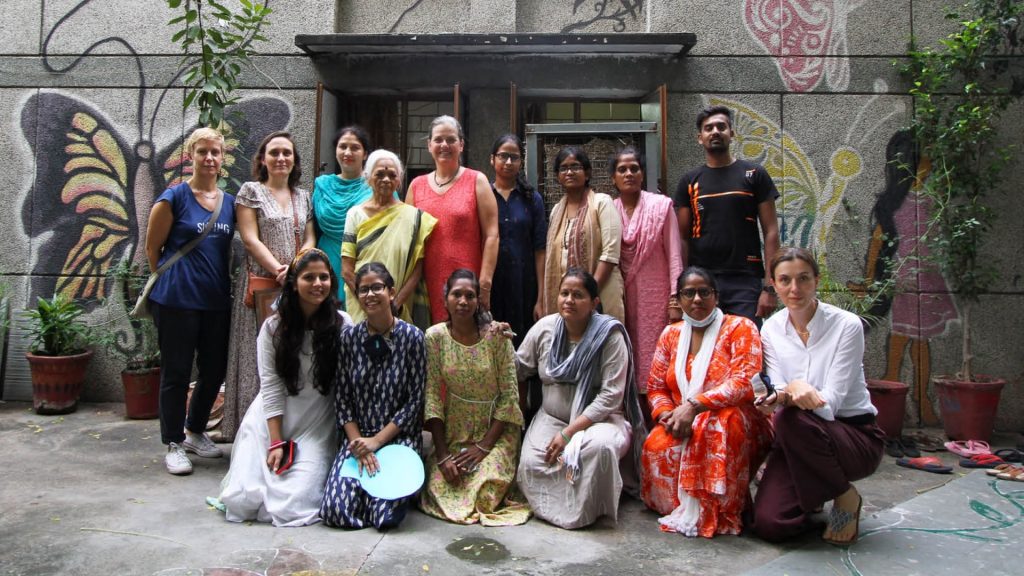

Pehchan- Shelter Home for women in Distress
Pehchan, connoting “identity”, is the shelter for distressed women victims and survivors of gender violence (often accompanied by their children), provided by Shakti Shalini.
It has an independent ground floor unit, 4 rooms and 2 bath cumtoilets, a kitchen, a sitting room and a comfortable, green courtyard. It can accommodate a large number of victims together if the need arises. However, ideally it can cater to a maximum of 10 women along with their children in cases where they accompany the mother. As a policy, no woman who seeks shelter post sunset is ever denied shelter. The women there live in a secure and clean environment. Sanitary and dietary amenities as well as medical aid are regularly provided at ‘Pehchan from case to case basis.’ However, recognizing our own present limitations of of resources, expertise, infrastructure and workforce, we do not accept individual who suffer with very extreme mental conditions and clinical psychiatric concerns.
Address: 6/30-B, Lower Ground Floor, Kargil Park Lane, Jangpura-B, New Delhi, Delhi 110014.
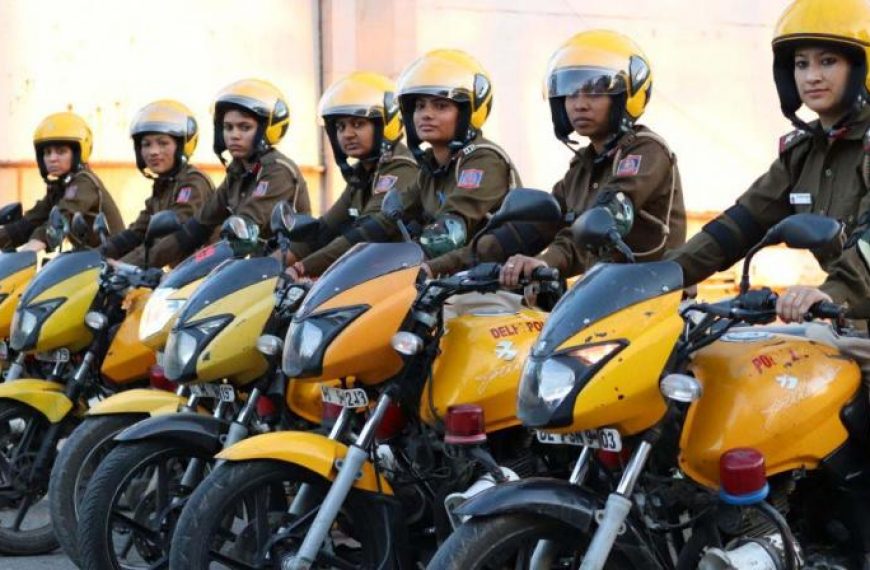

Launched in 2021, the ‘Tejaswini: Women Centric Safety & Empowerment Initiative’ deployed 46 Women Beat Constables in various crime sensitive police stations in New Delhi. These ‘Women Beat Constables’ provide door-step policing for identifying and addressing grievances of women within the community. They build confidence among women regarding their own safety in the immediate environment.
This exercise intends to sensitize women of all age groups and their guardians/ parents about the trends of various crimes against women such as molestation, rape, sexual assault, domestic violence, child abuse, harassment for dowry demand etc. It aims to empower them to tackle adverse and unwanted situations by themselves and educate them about obtaining legal help. This initiative has helped at least 243 senior citizens and women. They also organised 13 self-defence camps for school and college girls.
Spotlight for Mumbai:
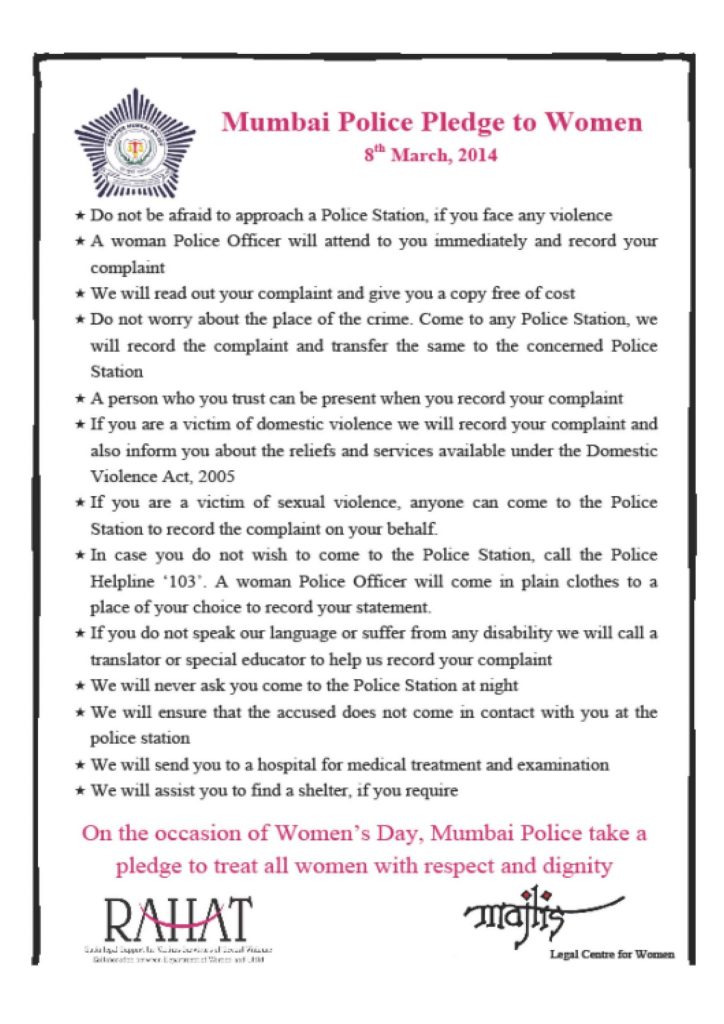

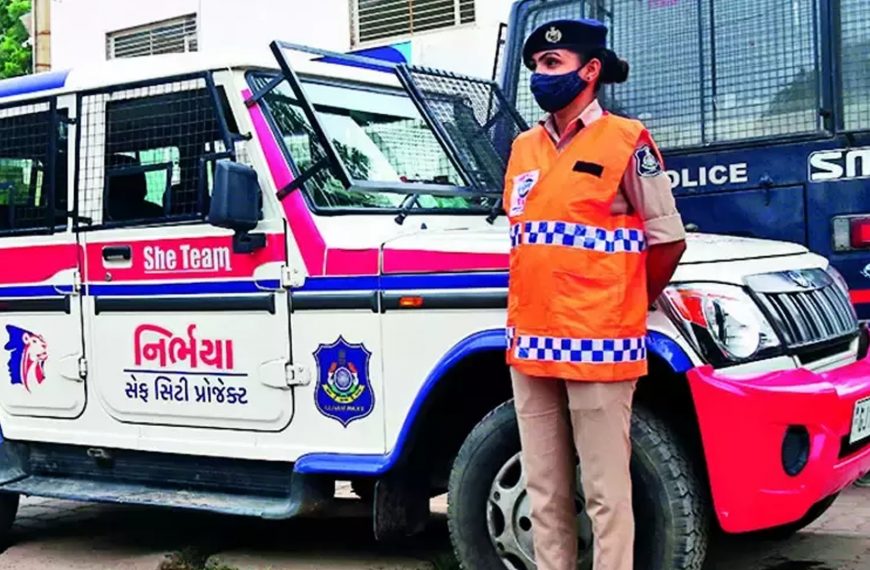

Project “Saksham” is an initiative by the Mumbai Police Force along with “M-Power” to mentally empower victims of crimes against women, victims of crimes under the POCSO Act, victimized minors, and juvenile delinquents and also to provide the proper legal guidance and counselling. Under this project, a “Women Safety Cell” will be set up in every police station and the Mobile-5 patrol vehicle in every police station in Brihanmumbai will be named and known as the “Nirbhaya Squad”. A Woman Assistant Commissioner of Police / Woman Police Inspector from each Regional Division will act as the Nodal / Supervising Officer of Nirbhaya Squad. Every police station will fix hotspots for crimes against women. If a woman travelling alone at night asks for help, the right help should be provided to take her to a safer place. Counselling centres will be set up at the regional division level as well as counselling centres at each circuit level. Along with this, the Nirbhaya Squad will conduct workshops on self-defence for women/girls in schools, colleges and staying at women’s hostel. Also, a complaint box called “Nirbhaya Box” will be kept there.
Spotlight for Bengaluru:
SURAKSHA: Bengaluru City Police SOS is a fully integrated personal safety app. It turns your Smartphone into a discreet personal safety device for use during an emergency. A call of service to Police can be triggered by simply activating the SOS button on your cell phone.
Key Features
-
- Will be triggered by pressing the power button 5 times
- A 10-second video clip will be recorded and uploaded
- Trigger Police to assist you in emergency.
- Send SOS Alerts to Friends and Relatives.
- Integrated to Police Computer Aided Dispatch System
- Enable real-time trace and track through GPS
The App is available as a free download from Google Play store. The user has to register the details along with contacts during installation.
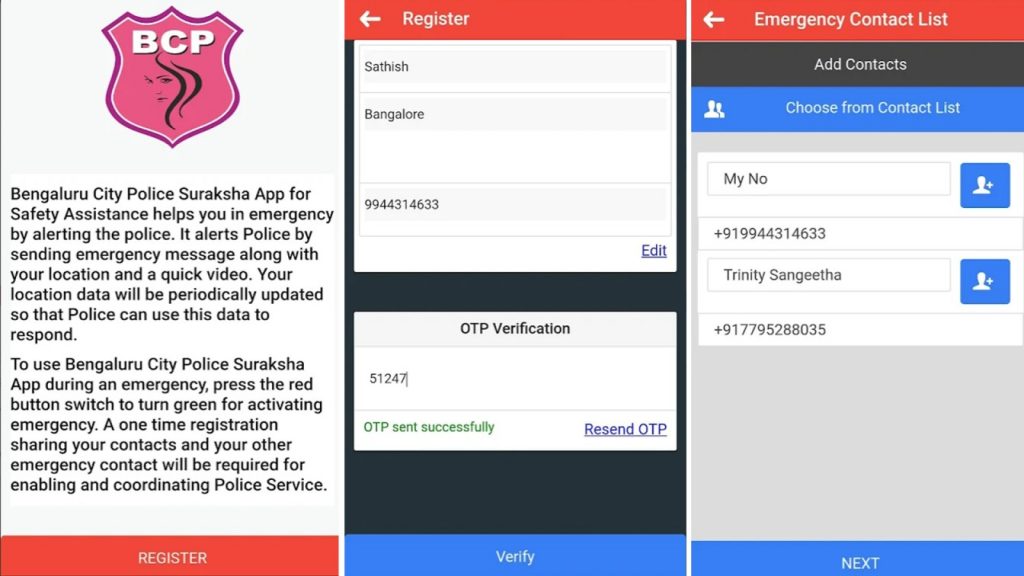

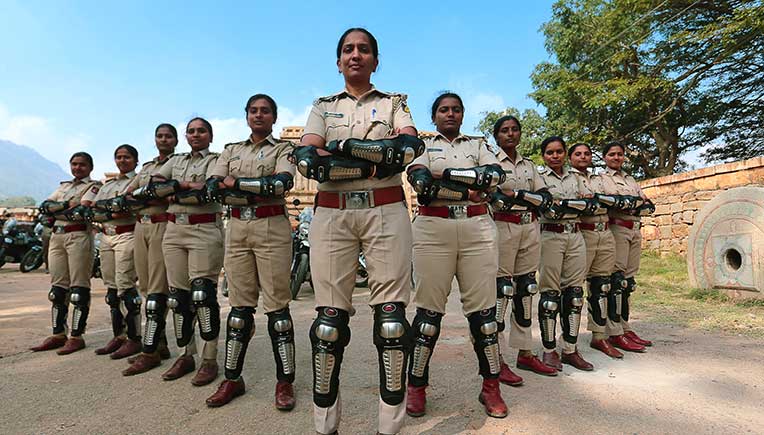

Pink Hoysala: “Pink Hoysala” or patrolling vehicles with women staff, in Bengaluru respond to complaints received through the Suraksha panic app and police control room number 112. They are stationed at sensitive locations. Areas with a high number of women’s hostels and paying guest accommodations, temples, and educational institutions are also being given high priority.
People can download the Suraksha emergency panic app on their mobile phones by providing their names and the numbers of two emergency contacts.
These moves are part of proactive measures by the police force to reduce crime against women and improved conditions for women’s safety and security.
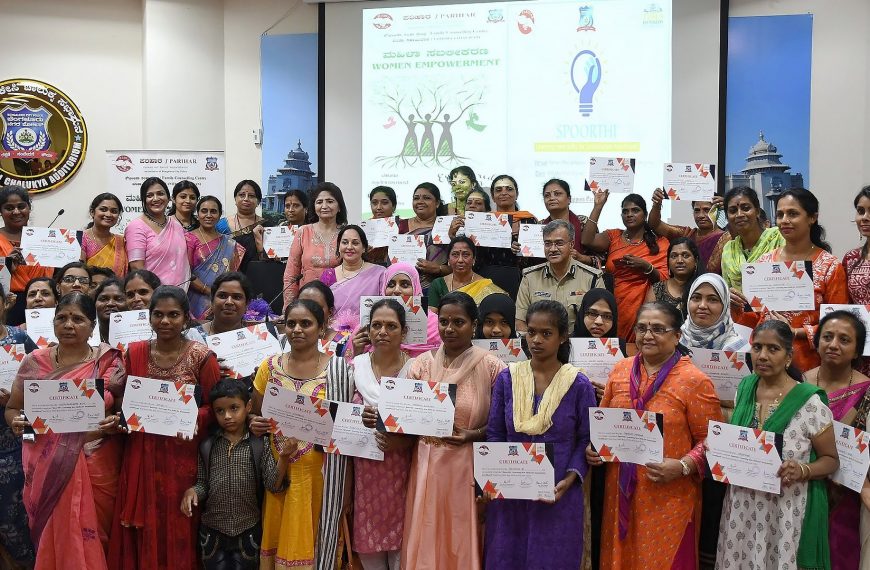

Parihar is a centre for research, training and development of women and children, with an objective to improve the welfare of women and children, to help mentally and physically handicapped, unemployed and distressed women, and abandoned / street/runaway children by counselling and training. The Commissioner of Police, Bangalore City is the Ex-Officio President of the Governing Body.
Their expert team of professional counsellors who are trained in social counselling are available 24/7 to respond to any distress calls. The services rendered are FREE and open to all.
| Address | PARIHAR OFFICE OF THE COMMISSIONER OF POLICE NO 1 INFANTRY ROAD BANGALORE 560001 |
| City | BANGALORE |
| State | KARNATAKA |
| Telephone | 080-22943225 |
| Mobile No | 9845450256 |
| pariharfcc.vsv@gmail.com |
Test your knowledge
(Objective answers in Yes/No )
- Can I file a case of domestic violence against my sister-in-law who has never lived with me in the same house? (Yes/No)
- I am a working woman, can I still get maintenance from my husband? If he fails to provide me with maintenance, can I file a domestic violence complaint against him?
- Can I go to the police station if I don’t find information regarding the Protection Officer?
- Can I take my child to the Shelter home with me?
- Can I get free legal aid for fighting a case of domestic violence against my husband?
- I am a working woman, can I still get maintenance from my husband? If he fails to provide me with maintenance, can I file a domestic violence complaint against him?
- I am constantly told by my in-laws that my parents didn’t buy them a bigger car at my wedding. Is this cruelty? Can my in-laws be punished for making such statements?
- My husband left me. Is this cruelty?
- My husband is in an extra-marital affair. Can I file a case against his girlfriend?
Support Systems in Delhi
Domestic Violence complaints can be lodged online in the portal of the National Commission of Women. On clicking the tab for registration, you will have to fill in your personal details such as name, address and sex, and give a description of the incident. On doing this, you will get a receipt number which you can use for monitoring the status of your complaint. Additionally, you can approach Mother Dairy booths, pharmacists and chemists throughout the city to complain about domestic violence since the Delhi State Legal Services Authority has been collaborating with them since the beginning of the COVID-19 pandemic.
- Delhi State Legal Services Authority:
- Helpline- 1516
- Phone Number- +91 96679 92802
- Mobile Application- Vidhik Sewa
- National Legal Services Authority:
- National Legal Helpline- 15100
- Women’s Cell Delhi Police: Find the document with contact numbers of different stations here.
- Delhi Commission for Women: (011) 23379181/ 23370597
- Lawyers Collective Women’s Rights Initiative [runs a pro-bono legal aid cell for domestic violence cases]: +91-022-22852543
- Child-line: 1098
- National Commission for Women Helpline: 7827170170
- Central Social Welfare Board -Police Helpline: 1091/ 1291;
- Shakti Shalini – women’s shelter: (011) 24373737
- All India Women’s Conference: (011) 23389680
- JAGORI: (011) 26692700; +918800996640
- Joint Women’s Programme: (0124) 4056116
- Sakshi – violence intervention center: (0124) 5018873
- Saheli – a women’s organisation: (011) 24616485 (Saturdays)
- Nirmal Niketan: (011) 27859158
- RAHI Recovering and Healing from Incest. A support centre for women survivors of child sexual abuse: 011 41607055
- Ask SHEROES: Find the online chatting service here.
- Women Helpline (Domestic Abuse ) : 181
Shelter Homes
The list of shelter homes in Delhi can be found here.
Medical Facilities
- LNJP Hospital, Jawahar Lal Nehru Marg, Delhi-02
- Dr. N.C. Joshi Memorial Hospital, East Park Road, Karol Bagh, Delhi-05
- Kasturba Hospital, Jama Masjid, Delhi
- Smt. Sucheta Kriplani Hospital, Bhagat Singh Marg, New Delhi-01
- Ram Manohar Lohia Hospital, Baba Kharak Singh Marg, New Delhi-01
- Aruna Asaf Ali (Civil) Hospital, 5 Rajpur Road, Delhi-54
- Sushrut Trauma Centre, Ring Road, Behind I.P. Collage, Delhi.
- Hindu Rao Hospital, Bara Hindu Rao, Delhi
- G.T.B. Hospital, Shahdara, Delhi-95
- Shahdara Civil Hospital, Shahdara, Delhi-32
- Swami Daya Nand Hospital, Shahdara, Delhi-32, IHBAS, Shahdara, Delhi, Sanjay Gandhi Memorial, S-Block, Mangol Puri, Delhi-85
- B.R. Ambedkar Hospital, Rohini, Delhi
- Babu Jagjivan Ram Memorial Hospital, Jahagir Puri, Delhi-33
- Raja Harish chander Hospital, Narela, Delhi Maharishi Balmiki Hospital, Pooth Khard, Delhi-39, Colony Hospital, Malvia Nagar, Delhi-17
- Safdarjung Hospital, Safdarjang, Ring Road, Delhi-23
- Deen Dayal Upadhya, Hari Nagar, New Delhi-64, Colony Hospital, Moti Nagar, Delhi, Colony Hospital, Patel Nagar, Delhi, Guru Govind Hospital, Raghubir Nagar, Delhi-27, Rao Tula Ram Memorial Hospital, Zaffarpur, Delhi-93
Support Systems in Mumbai
Domestic Violence complaints can be lodged online in the portal of the National Commission of Women. On clicking the tab for registration, you will have to fill in your personal details such as name, address and sex, and give a description of the incident. On doing this, you will get a receipt number which you can use for monitoring the
status of your complaint. Additionally, you can approach Mother Dairy booths, pharmacists and chemists throughout the city to complain about domestic violence since the Delhi State Legal Services Authority has been collaborating with
them since the beginning of the COVID-19 pandemic.
- National Legal Services Authority: National Legal Helpline- 1516
- Maharashtra State Legal Services Authority: Toll free Helpline Number:1800 22 23 24; Tel.: 022-22691395
- District Legal Services List
- Contact numbers of different stations list
- Mumbai Cyber Station- +022 26504008
- Mumbai Police Women Helpline- +022 22633333, 103
- Maharashtra State Commission for Women: Helpline- 155209; Contact No.- +022 26592707
- Child-line: 1098
- Domestic Violence against Women: 7217735372 (WhatsApp Number) by National Commission for Women
- National Commission for Women Helpline: 7827170170; WhatsApp- 7217735372
- Central Social Welfare Board -Police Helpline: 1091/ 1291; (011) 23317004
- All India Women’s Conference: (011) 43389100/43389101/43389102/43389103
- Maharashtra State Human Rights Commission: +022 22092857
- Ask SHEROES: Find the online chatting service here.
- Women Helpline (Domestic Abuse ) : 181
Shelter Homes
- Shantighar: 08828365666
- Urja Trust: 9819806266 / +022 24124397
- Shelter Don Bosco: +022 24150562
- Bombay YMCA- Sharan Shelter : +022 28500277
- Rescue Foundation – For Girls & Women: 09820210705
Medical Facilities
One Stop crisis centre
- Female Beggars Home, 1st Fl.R.C. Marg, Opp. Jain Mandir, Chembur(E) Mumbai-400071, contact no.: 9702962025
- Chatrapati Shivaji Maharaj Hospital Kalwa (W), Thane 400605 BARC hospital, contact no.: 7977386300
- One Stop Centre, Mumbai City, Old Building, KEM Hospital, Acharya Dade Marg, Parel, Mumbai- 400012, contact no.: 9653660408
Support Systems in Bengaluru
Domestic Violence complaints can be lodged online in the portal of the National Commission of Women. On clicking the tab for registration, you will have to fill in your personal details such as name, address and sex, and give a description of the incident. On doing this, you will get a receipt number which you can use for monitoring the status of your complaint. Additionally, you can approach Mother Dairy booths, pharmacists and chemists throughout the city to complain about domestic violence since the Delhi State Legal Services Authority has been collaborating with them since the beginning of the COVID-19 pandemic.
- National Legal Services Authority:
- National Legal Helpline- 15100
- Karnataka State Legal Services Authority:
- Helpline- 1800-425-90900
- Phone Number- 080-22111714, 080-22111729
- District legal services list
- Women’s Police Station, Bengaluru: 080 22943250
- Find the document with contact numbers of different stations here.
- Women Cyber Security Cell: 099000 39039
- Bangalore Police Headquarters: 080 2294 2595
- Karnataka State Commission for Women: 080-22216485/486 Fax: 080-22216485
- Child-line: 1098
- Domestic Violence against Women: 7217735372 (WhatsApp Number) by National Commission for Women
- National Commission for Women Helpline: 7827170170
- Central Social Welfare Board -Police Helpline: 1091/ 1291; (011) 23317004
- Vanitha Sahaya Vani: 080 2294 3225
- Women’s And Children’s Safety Help Line: 09108445555
- South India Cell for Human Rights Education &Monitoring (SICHREM): 080-25473922, 25492856, 25804072-73
- All India Women’s Conference: 011 23389680
- Joint Women’s Programme: (0124) 4056116
- Vishvashanthi Santwana Womens Helpline Center: 080 2360 9888
- Karnataka State Human Rights Commission: 0802239 2203
- RAHI Recovering and Healing from Incest. A support centre for women survivors of child sexual abuse: 011 41607055
- Ask SHEROES: Find the online chatting service here.
- 13. Women Helpline (Domestic Abuse ) : 181
Shelter Homes
-
- TARA Women’s Centre: 080-25251929
- Abhayashrama:080-22220834,080-22121131
- Vimochana:080-25492781/82
- Samaja Seva Samithi:080-26600022/9448945367
- The rehabilitation centres under Swadhar Gruh scheme: list
- TARA Women’s Centre: 080-25251929
Medical facilities
One stop crisis centres:
-
- K.C.General Hospital, Malleshwaram, Bangalore Government Hospital, K.R.Puram, Bangalore.
- The Bowring and Lady Curzon Hospital,Lady Curzon Rd, Shivaji Nagar, Bengaluru, Karnataka 560001.
- Victoria hospital, Mysore Rd, near City Market, New Tharagupet, Bengaluru, Karnataka 560002
- Vanivilas Hospital, Sultan Rd, Kalasipalya, Bengaluru, Karnataka 560002.
- K.C.General Hospital, Malleshwaram, Bangalore Government Hospital, K.R.Puram, Bangalore.

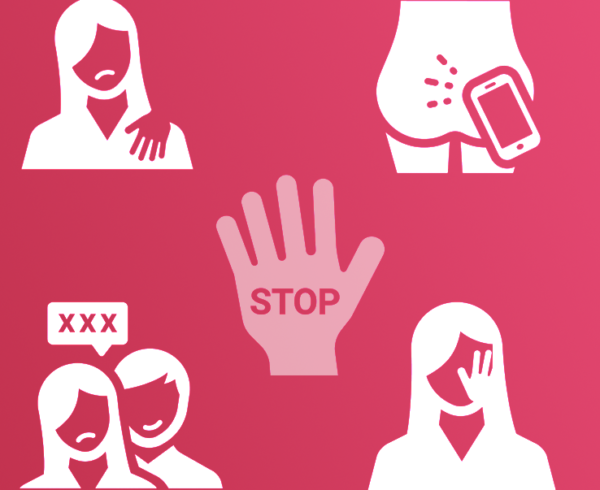
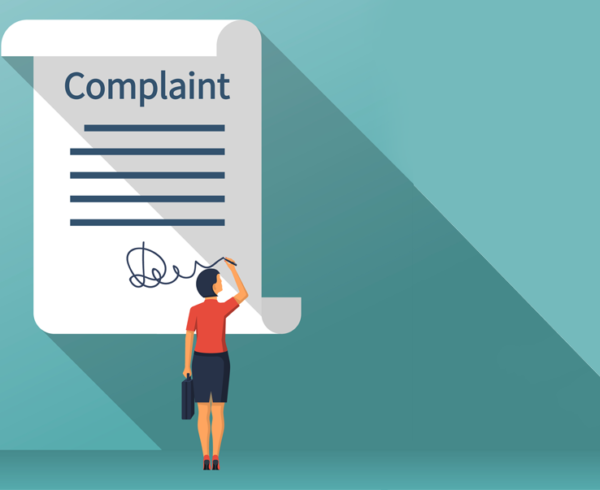


Leave a Comment